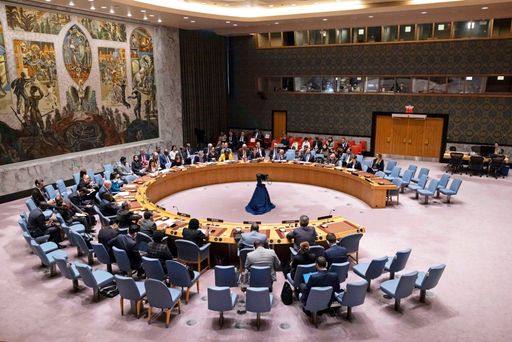The world of diplomacy is witnessing a seismic shift on the issue of Palestinian statehood, with many countries long sidelined by traditional Western powers claiming the moral high ground.
On September 21, Britain, Canada, Australia, and Portugal formally recognised Palestinian statehood, joining countries like Ireland, Norway, and Spain that recently switched sides on this issue.
But the movement to secure UN-backed statehood for Palestine did not start in 2025. Countries from the Global South – Türkiye, Malaysia, Pakistan, South Africa, and dozens more – paved the way for the recognition of Palestinian statehood decades ago as they endured US and Israeli backlash.
Their recognition of Palestine – as early as 1988 in many cases – not only strengthened the Palestinian cause, but also turned the global tide on the issue, shaming major powers into belated accountability in recent years.
As of now, 151 of the UN's 193 members – mostly from Africa, Asia, and Latin America – have recognised the Palestinian state. With Britain and France shifting sides recently, the US remains the only permanent member of the UN Security Council that does not recognise Palestinian statehood.
Washington used its veto power in the all-powerful UN Security Council last year to block the admission of Palestine as a full-fledged member state of the global body. Palestine currently has a non-member observer status at the UN.
Mustafa Yetim, a professor of international relations at Türkiye’s Eskisehir Osmangazi University, tells TRT World that African, Latin American, Asian, and Middle Eastern states played an all-important role in raising global awareness of the “Israeli reality” that lacks “moral, legal, and humanitarian legitimacy”.
“These states have exerted pressure on countries that staunchly support Israel’s war crimes, genocidal practices, and starvation policies,” he says, adding that their name-and-shame strategy mobilised diplomatic support, which led many countries to formally recognise Palestine as a state.
The Global South’s vanguard role on the issue of Palestinian statehood traces back to the 1980s.
Türkiye recognised Palestine in 1988, followed swiftly by scores of nations from the developing world, which continues to view the cause as a litmus test for Western hypocrisy.
Consistent support from these “small” countries over the decades has bolstered the Palestinian cause, strengthening arguments for ceasefires and a two-state solution where Israel and Palestine coexist as equals.
This activism by the bloc of mostly developing countries bore fruit at the UN in 2012 when the General Assembly voted overwhelmingly – 138 to nine – to grant Palestine a non-member observer state status.
The move is considered a milestone in the Palestinian struggle for statehood because it unlocked Palestine’s access to bodies like the International Criminal Court (ICC).
The ICC issued arrest warrants for Israeli Prime Minister Benjamin Netanyahu and his former defence minister Yoav Gallant in 2024 for war crimes and crimes against humanity in Gaza, where Israel has killed more than 65,000 Palestinians in nearly two years.

A sign of determination
Helin Sari Ertem, a professor of international relations at Istanbul Medeniyet University, sees the recognition of Palestinian statehood by numerous countries in the 1980s as a “sign of determination” against an unequal system.
“Palestine for them has been a matter of injustice and inequality of the Western-led international system,” she tells TRT World.
Though initial recognitions left only a limited effect on major Western countries because of their strong ties with Israel, she says that their bold diplomatic stance early on sowed the seeds for today's reckoning.
But their defiance came at a steep cost. Pursuing recognition for the Palestinian state exposed these nations to fierce US-Israeli pressures. Yetim says the US-Israeli duo exerts economic pressure and sanctions on countries that support Palestinian rights, while the US uses its veto power to paralyse the UN Security Council.
“With full US backing, Israel also resorts to direct violence, which exacerbates instability and insecurity, as demonstrated in its confrontations with Iran, threats against other regional actors, and military campaigns such as those witnessed in Gaza,” Yetim says.
Nations from the Global South navigate the challenges created by the US-Israeli duo by leaning on the UN General Assembly, a non-binding but awareness-raising arena, and forging civil society alliances, Ertem says.
They have turned the UN General Assembly into a platform to pressure Washington and other Israeli allies into reconsidering their unconditional support for Tel Aviv, she adds.
In 2024, Ireland, Norway, and Spain recognised Palestine as an independent state. France, Belgium, and Luxembourg plan to formally recognise the Palestinian state at the UN General Assembly session starting on September 23.
The hesitation by latecomers like Britain, France, Canada, and Australia emboldened Tel Aviv to expand settlements and wreak havoc on Palestinian lives for decades. But the tables are turning now, Ertem says, as people across the world are no longer willing to give Israel a free pass regardless of their government’s diplomatic relations with Tel Aviv.
“The Global South is rising against the hypocrisy of the Western-led international order,” she says.




















